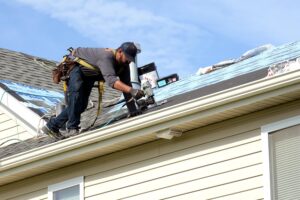What Really Happens When You Buy Your First House

Buying your first house is a major milestone that involves many steps and decisions. The process can take several months from start to finish, and understanding what to expect makes it much less overwhelming. Here’s what actually happens when someone decides to purchase their first home.
Getting Your Finances in Order
The first step is figuring out your financial situation. Most people need a mortgage to buy a house because homes cost far more than most people have in savings. Houses often cost hundreds of thousands of dollars, so getting a loan from a bank becomes necessary.
Banks want to see proof that you can repay a mortgage before they approve one. They examine your monthly income, existing debts, credit score, and payment history. You also need money saved for a down payment, which shows the lender you’re committed to the purchase.
Down payments typically range from 3% to 20% of the home’s purchase price. For a $200,000 house, that means having $6,000 to $40,000 ready to put down. Many first-time buyers spend years saving for this initial payment while also building good credit.
House Hunting and Making Choices
Once you know how much you can borrow, the search begins. Most buyers work with real estate agents who understand local markets and can show properties that fit specific budgets and needs. These professionals help navigate the complex process and provide valuable guidance.
Looking at houses takes time. Buyers often visit dozens of homes before finding the right one. Each property requires careful consideration of factors like size, location, condition, neighborhood quality, and commute times to work or school.
Good houses sell quickly in most markets. When buyers find a property they want, they need to act fast. Sometimes multiple buyers want the same house, creating competition where people offer more than the asking price to win the sale.
Making an Offer and Due Diligence
When buyers decide on a house, they submit a written offer with specific terms and conditions. The most important condition is usually the right to have the property professionally inspected. This protection allows buyers to discover problems before finalizing the purchase.
A professional home inspection involves a qualified expert examining the entire property. The inspector checks electrical systems, plumbing, heating and cooling equipment, the roof, foundation, and overall structural condition. They look for safety issues, needed repairs, and systems that might fail soon.
The inspection takes several hours and results in a detailed report. If significant problems surface, buyers can negotiate repairs, request money off the purchase price, or cancel the contract entirely. This step protects buyers from purchasing homes with expensive hidden problems.
Final Steps and Closing
After a successful inspection, the process moves toward closing day. The mortgage application gets final approval, meaning the bank commits to lending the money. A title search confirms that the seller legally owns the property and can transfer ownership.
Most buyers do a final walkthrough about a week before closing. This visit ensures nothing has changed since the offer was accepted and confirms that any agreed-upon repairs were completed properly.
Closing day brings everyone together to make the sale official. Buyers, sellers, real estate agents, and legal representatives meet to sign numerous documents. The buyer receives the house keys and officially becomes a homeowner. The entire process from initial offer to closing typically takes 30 to 45 days.
What New Homeowners Should Expect
Owning a house brings new responsibilities that renters never face. Property taxes become an annual expense, and homeowner’s insurance protects against damage from storms, fires, and other disasters. These costs often get rolled into monthly mortgage payments through an escrow account that the lender manages.
Maintenance and repairs fall entirely on the homeowner. When the water heater breaks or the roof starts leaking, there’s no landlord to call. Smart homeowners set aside money each month for these unexpected expenses. A good rule is saving about 1% to 3% of the home’s value each year for maintenance and repairs.
The good news is that homeownership builds wealth over time as property values generally increase. Monthly mortgage payments also build equity, meaning owners gradually own more of their house as they pay down the loan. After several years, many homeowners find their property is worth more than they paid for it.
Homeowners also get tax benefits that renters don’t receive. Mortgage interest and property taxes can often be deducted from income taxes, which saves money each year. These tax advantages make homeownership more affordable for many people.
Planning Ahead Makes Everything Easier
The home buying process works best when people prepare well in advance. Start saving for a down payment early, work on building good credit, and learn about different neighborhoods before you need to buy. Understanding these steps ahead of time helps first-time buyers feel confident when they’re ready to purchase their first home.
Remember that buying a house is probably the biggest financial decision most people make. Taking time to understand each step and getting help from qualified professionals makes the process much smoother and more successful.



Average Rating